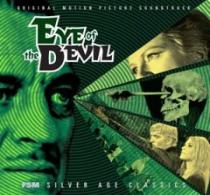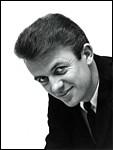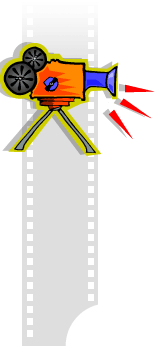
SOUNDTRACKS
Soundtracks are a lot more than movie music...
...or so I'm ready to argue as a 30 year devotee of this sorely under appreciated genre. So, in an effort to do my part, each week
I'll be making recommendations of soundtracks current and vintage, make a fuss over long awaited soundtrack scores finally getting
a well deserved release, and in general, make some noise about this often overlooked category. Beyond my long experience as a
listener and as a pianist and songwriter, both of which I've put to use in writing a quarterly soundtrack column for the Chicago
Tribune, I can only offer my recommendations. You'll discern my taste soon enough and upfront I'd like to make it clear that I'll
focus most heavily on SCORE soundtracks. In the end, all criticism is subjective but if I can point a listener toward a little heard
soundtrack or strongly advise you to either ORDER IMMEDIATELY or SKIP ALTOGETHER, all the better.
...or so I'm ready to argue as a 30 year devotee of this sorely under appreciated genre. So, in an effort to do my part, each week
I'll be making recommendations of soundtracks current and vintage, make a fuss over long awaited soundtrack scores finally getting
a well deserved release, and in general, make some noise about this often overlooked category. Beyond my long experience as a
listener and as a pianist and songwriter, both of which I've put to use in writing a quarterly soundtrack column for the Chicago
Tribune, I can only offer my recommendations. You'll discern my taste soon enough and upfront I'd like to make it clear that I'll
focus most heavily on SCORE soundtracks. In the end, all criticism is subjective but if I can point a listener toward a little heard
soundtrack or strongly advise you to either ORDER IMMEDIATELY or SKIP ALTOGETHER, all the better.
Film Score Monthly, probably my favorite record label for film score collectors, kicks off their
11th year with a tremendous release – just one of two movie scores by jazz composer-
arranger and vocalist Gary McFarland who died too young (under mysterious circumstances)
at the age of 38 in 1971. McFarland's score speaks to the tragic waste of a composer that
the movies missed out on (as do his brilliant, adventurous solo and ensemble jazz
albums). Eye of the Devil (also known as 13) is a little known 1966 horror film starring
David Niven and Deborah Kerr that is renowned for its troubled production and for introducing
Sharon Tate to the screen (she and David Hemmings play an ominous brother and sister).
The film is a moody, interesting curio focusing on witchcraft and Satanic rituals and
McFarland's score helps enormously. The plot concerns a wealthy landowner (Niven) who is
called back to the baronial estate when the grape crop begins to fail. It slowly dawns on his
horrified wife (Kerr) that Niven is the subject of an ancient family curse that someone is tied
into the revival of the harvest.
The mood is established from the outset. Niven and Kerr are in the midst of throwing a
party and their guests have sat down to listen to a lone harpist play the haunting theme that
will repeat throughout the film. The cue is picked up by French horns and subtle strings as
Niven is called to the telephone ("Main Title/Phillippe's Study") and continues with Phillippe's
"Drive to the Chateau." Here the theme is given the majestic treatment with full orchestra
that fades as quickly as it rises. When Kerr follows to the chateau with the children
("Catherine's Drive"), the main theme is heard again, this time in a much brighter
arrangement.
The soundtrack (being released for the first time in a carefully restored version) has
numerous other highlights - the beautiful but eerie "Procession" followed closely by
"Catherine to Tower" and the penultimate track, "Jacques and the Eye." The score also
includes McFarland's percussion driven music for the film's trailer and some other bonus
tracks though it would have been nice if FSM had been able to include McFarland's own vocal
version of his main theme (with lyrics and titled "One I Could Have Loved"). But its
exclusion should just encourage listeners to seek out McFarland's jazz albums and it should
be quickly noted that FSM has once again done a superlative job (and the disc again
includes one of their photo and info packed jewel case booklets).
For soundtrack enthusiasts, particularly those that crave haunting, gorgeous melodies, Eye of
the Devil is NOT to be missed. McFarland's symphonic jazz score (infused with those
treasured gothic elements I so love) is magnificent. One can only hope that this leads to a
release of the film on DVD - what a duo that would be!
+++++++++++++++++++++++++++++++++++++++++++++++++++++++++++++++++
Don't forget to check out previous soundtrack recommendations by visiting the ARCHIVES
Next Recommendation: TBA
11th year with a tremendous release – just one of two movie scores by jazz composer-
arranger and vocalist Gary McFarland who died too young (under mysterious circumstances)
at the age of 38 in 1971. McFarland's score speaks to the tragic waste of a composer that
the movies missed out on (as do his brilliant, adventurous solo and ensemble jazz
albums). Eye of the Devil (also known as 13) is a little known 1966 horror film starring
David Niven and Deborah Kerr that is renowned for its troubled production and for introducing
Sharon Tate to the screen (she and David Hemmings play an ominous brother and sister).
The film is a moody, interesting curio focusing on witchcraft and Satanic rituals and
McFarland's score helps enormously. The plot concerns a wealthy landowner (Niven) who is
called back to the baronial estate when the grape crop begins to fail. It slowly dawns on his
horrified wife (Kerr) that Niven is the subject of an ancient family curse that someone is tied
into the revival of the harvest.
The mood is established from the outset. Niven and Kerr are in the midst of throwing a
party and their guests have sat down to listen to a lone harpist play the haunting theme that
will repeat throughout the film. The cue is picked up by French horns and subtle strings as
Niven is called to the telephone ("Main Title/Phillippe's Study") and continues with Phillippe's
"Drive to the Chateau." Here the theme is given the majestic treatment with full orchestra
that fades as quickly as it rises. When Kerr follows to the chateau with the children
("Catherine's Drive"), the main theme is heard again, this time in a much brighter
arrangement.
The soundtrack (being released for the first time in a carefully restored version) has
numerous other highlights - the beautiful but eerie "Procession" followed closely by
"Catherine to Tower" and the penultimate track, "Jacques and the Eye." The score also
includes McFarland's percussion driven music for the film's trailer and some other bonus
tracks though it would have been nice if FSM had been able to include McFarland's own vocal
version of his main theme (with lyrics and titled "One I Could Have Loved"). But its
exclusion should just encourage listeners to seek out McFarland's jazz albums and it should
be quickly noted that FSM has once again done a superlative job (and the disc again
includes one of their photo and info packed jewel case booklets).
For soundtrack enthusiasts, particularly those that crave haunting, gorgeous melodies, Eye of
the Devil is NOT to be missed. McFarland's symphonic jazz score (infused with those
treasured gothic elements I so love) is magnificent. One can only hope that this leads to a
release of the film on DVD - what a duo that would be!
+++++++++++++++++++++++++++++++++++++++++++++++++++++++++++++++++
Don't forget to check out previous soundtrack recommendations by visiting the ARCHIVES
Next Recommendation: TBA
With the release of the Eye of the
Devil soundtrack FSM rescues yet
another overlooked film score
masterpiece from oblivion. Gary
McFarland, the brilliant composer of
the score, as he appeared near the
time the music was recorded in 1966.
Devil soundtrack FSM rescues yet
another overlooked film score
masterpiece from oblivion. Gary
McFarland, the brilliant composer of
the score, as he appeared near the
time the music was recorded in 1966.


